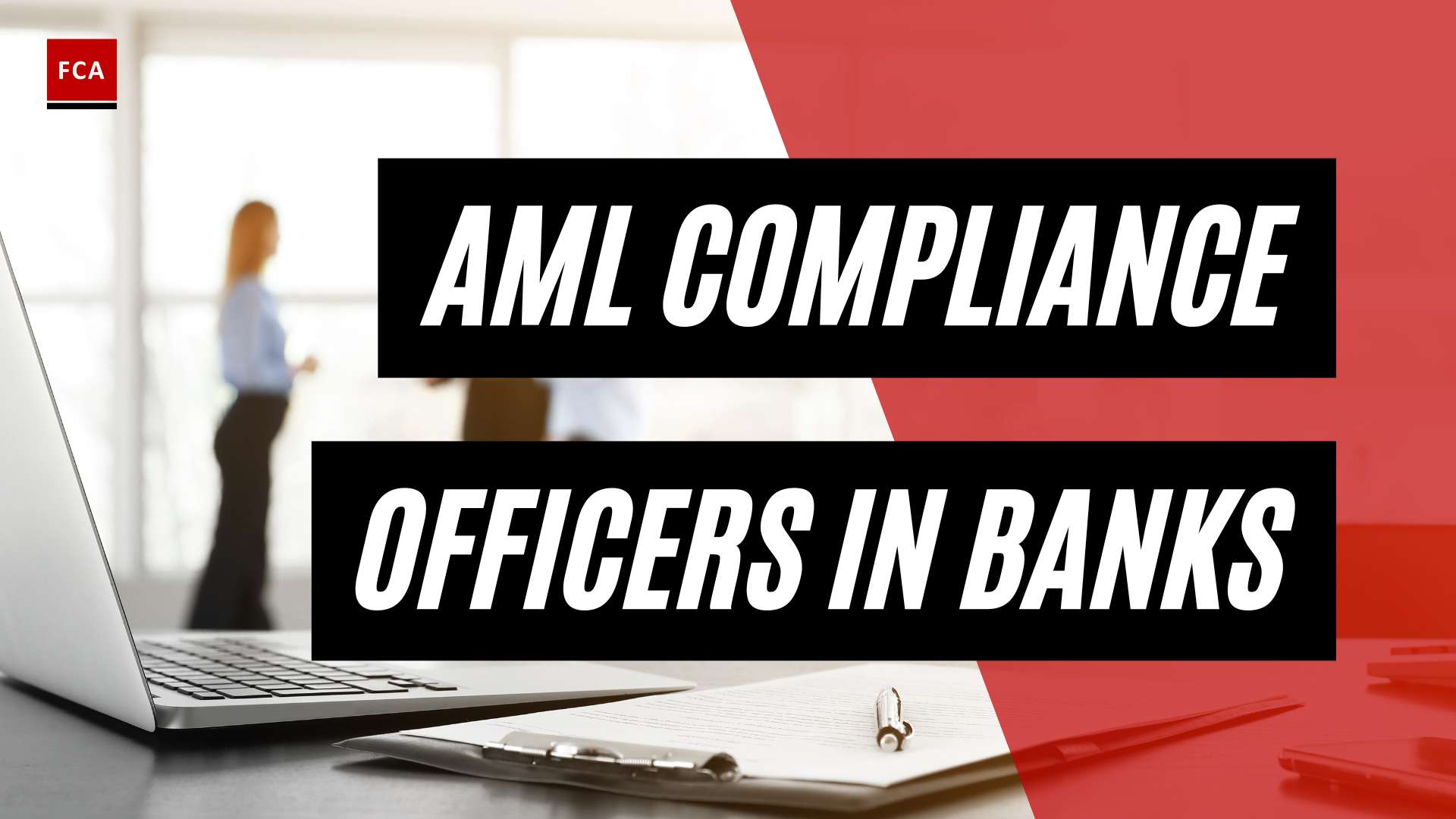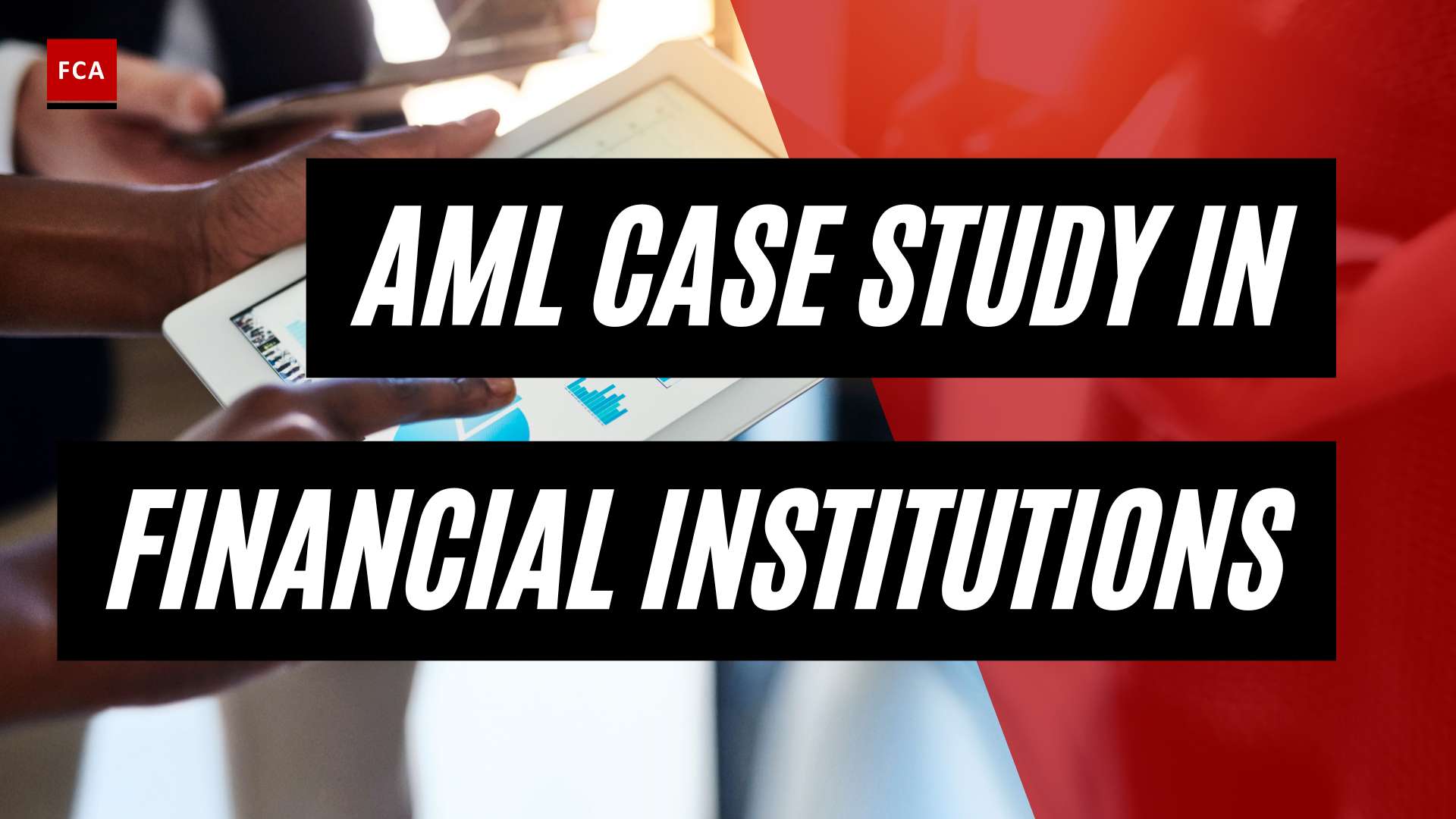Understanding AML Compliance for Non-Financial Businesses
To prevent the exploitation of their services for illicit activities such as money laundering and terrorist financing, non-financial businesses must prioritize the implementation of AML controls. Anti-money laundering (AML) controls are crucial for non-financial businesses to comply with global AML regulations and safeguard themselves from potential legal and reputational risks associated with financial crimes (Trulioo).
Importance of AML Controls
Implementing robust AML measures is essential for non-financial businesses to remain compliant with AML regulations and protect their operations. By adhering to AML controls, non-financial businesses can:
- Mitigate the risk of money laundering and terrorist financing activities.
- Safeguard their reputation and maintain customer trust.
- Demonstrate their commitment to ethical business practices and regulatory compliance.
- Minimize the potential legal consequences and financial penalties associated with non-compliance.
The penalties for non-compliance with AML regulations can be severe. In the United States, fines for AML violations can range from $500 to $1.5 billion (Fintech Global). It is not only the financial impact that non-financial businesses should be concerned about; the loss of customer trust and reputational damage can have long-lasting effects on the viability of the business.
By implementing effective AML controls, non-financial businesses can contribute to the global fight against money laundering, ensuring the integrity of the financial system and protecting their own interests.
Risks of Non-Compliance
Failure to implement adequate AML controls in non-financial businesses exposes them to various risks. These risks include:
- Facilitating money laundering and other financial crimes, potentially leading to legal consequences.
- Damaging the reputation and credibility of the business, resulting in the loss of customers and business opportunities.
- Attracting the attention of regulatory authorities, leading to investigations and potential enforcement actions.
- Incurring significant financial penalties, which can range from fines to confiscation of assets.
To avoid these risks, non-financial businesses must prioritize compliance with AML regulations and establish robust AML control frameworks. This ensures that they have the necessary measures in place to prevent, detect, and report suspicious activities.
In the following sections, we will explore the key components of AML controls, the challenges faced by non-financial businesses in achieving AML compliance, the consequences of non-compliance, and best practices for implementing effective AML controls. Stay tuned to gain a comprehensive understanding of AML compliance for non-financial businesses and how to navigate this complex landscape.
Key Components of AML Controls
To ensure compliance with anti-money laundering (AML) regulations, non-financial businesses need to implement effective AML controls. These controls consist of several key components, including customer due diligence (CDD), transaction monitoring, record-keeping, and reporting suspicious activities.
Customer Due Diligence (CDD)
Customer due diligence is a fundamental component of AML controls for non-financial businesses. It involves verifying the identity of customers, assessing the risks associated with the customer relationship, and monitoring transactions for suspicious activities (LinkedIn). By conducting thorough CDD, businesses can better understand their customers, identify potential risks, and ensure compliance with AML regulations.
CDD typically involves collecting information such as customer identification documents, proof of address, and beneficial ownership details. This information helps businesses establish the legitimacy of their customers and detect any potential red flags. Implementing a risk-based approach to CDD allows businesses to allocate resources effectively and focus on higher-risk customers.
Transaction Monitoring
Transaction monitoring is another essential component of AML controls. It enables non-financial businesses to detect and investigate unusual activities that may indicate money laundering or other financial crimes (LinkedIn). By implementing robust transaction monitoring systems, businesses can identify patterns, anomalies, and suspicious transactions.
Effective transaction monitoring involves setting up rules and parameters based on knowledge of sector-specific financial crime typologies and trends. These rules generate alerts for further investigation when transactions meet specific criteria. Regular reviews and updates of transaction monitoring systems are crucial to ensure their effectiveness in detecting emerging risks and evolving money laundering techniques.
Record-Keeping
Maintaining comprehensive records is a critical aspect of AML controls. Non-financial businesses should keep records of customer identification information, transaction history, and other relevant documents (LinkedIn). These records serve as evidence of compliance, support the detection and investigation of suspicious activities, and provide a historical audit trail.
By maintaining accurate and up-to-date records, businesses can demonstrate their adherence to AML regulations and facilitate regulatory examinations and audits. It is essential to establish proper data management and retention policies to ensure the security and privacy of customer information.
Reporting Suspicious Activities
Reporting suspicious activities is a crucial obligation for non-financial businesses under AML controls. When businesses encounter transactions or activities that raise suspicions of money laundering or terrorist financing, they must report them to the appropriate authorities (Trulioo). Reporting helps law enforcement and financial intelligence units to take necessary actions and investigate potential financial crimes.
Non-financial businesses should establish internal procedures and protocols for identifying and reporting suspicious activities. These procedures should define the criteria for reporting, the communication channels with relevant authorities, and the timeframe for reporting. Prompt and accurate reporting ensures a collaborative effort in combating money laundering and helps protect businesses from legal and reputational risks.
In summary, the key components of AML controls for non-financial businesses include customer due diligence (CDD), transaction monitoring, record-keeping, and reporting suspicious activities. By implementing these components effectively, businesses can mitigate the risk of money laundering, maintain compliance with AML regulations, and contribute to the overall integrity of the financial system.
Challenges of AML Compliance for Non-Financial Businesses
When it comes to AML compliance, non-financial businesses face unique challenges that require careful consideration and adaptation of their AML controls. Two key challenges that these businesses encounter are adapting to digital transactions and resource constraints.
Adapting to Digital Transactions
With the rise of digital transactions and online services, non-financial businesses must adapt their AML controls to handle the increased volume and complexity of financial transactions occurring through their platforms (Trulioo). The digital landscape introduces new risks and vulnerabilities that businesses need to address to mitigate the potential for money laundering and other illicit activities.
Non-financial businesses should implement robust customer due diligence (CDD) processes that encompass digital identity verification and authentication. This helps ensure that the individuals engaging in transactions are properly identified and verified, reducing the risk of fraudulent or criminal activities.
Transaction monitoring is another vital aspect of AML controls for non-financial businesses in the digital realm. By leveraging advanced technologies and analytics, businesses can effectively detect suspicious patterns or behaviors that may indicate money laundering or other illicit activities. Implementing automated transaction monitoring systems can help streamline this process and improve the efficiency and effectiveness of AML controls.
Resource Constraints
Non-financial businesses often face resource constraints when it comes to implementing AML controls, particularly in comparison to financial institutions (Fintech Global). Limited budgets, staffing, and expertise can pose significant challenges in establishing and maintaining robust AML programs.
To overcome these constraints, non-financial businesses can consider outsourcing certain AML functions, such as transaction monitoring or customer due diligence, to specialized service providers. This allows businesses to leverage the expertise and resources of external partners who specialize in AML compliance.
Investing in AML training and education for employees is also crucial to ensure that all staff members understand their responsibilities and the importance of AML compliance. By promoting a culture of compliance and providing comprehensive training, businesses can empower their employees to effectively contribute to the AML controls.
Furthermore, non-financial businesses should consider collaborating with industry associations or engaging in knowledge-sharing initiatives to stay up to date with the latest AML trends, regulations, and best practices. This can help overcome resource constraints by leveraging collective expertise and insights.
By acknowledging and addressing these challenges, non-financial businesses can enhance their AML controls and better protect themselves from the risks of money laundering and other financial crimes. It is essential to continuously evaluate and improve AML processes to ensure compliance with regulations and maintain the integrity of their operations.
Consequences of Non-Compliance
Ensuring compliance with anti-money laundering (AML) regulations is crucial for non-financial businesses. Failure to implement adequate AML controls can lead to severe consequences, both financially and in terms of reputation.
Financial Penalties
Non-compliance with AML regulations can result in significant financial penalties. The exact penalties vary depending on the jurisdiction and the severity of the violation. For instance, in Canada, failure to comply with the Proceeds of Crime (Money Laundering) and Terrorist Financing Act may result in criminal charges for non-compliance offenses or administrative monetary penalties (AMPs) (FINTRAC). The penalties can range from fines to potential imprisonment in certain cases. It’s important to note that fines imposed by regulatory authorities can be substantial and have a direct impact on a business’s bottom line. In the United States, fines for AML violations can range from $500 to $1.5 billion (Fintech Global).
Reputational Damage
Non-compliance with AML regulations can have a significant impact on the reputation of a non-financial business. The mere association with money laundering or terrorist financing can erode customer trust and confidence in the business. News of non-compliance can spread quickly, resulting in negative publicity and damage to the business’s image. Rebuilding trust and reputation can be a challenging and time-consuming process, potentially leading to a loss of existing customers and difficulty in attracting new ones.
Maintaining a strong reputation is essential for the long-term success and sustainability of any business. Demonstrating a commitment to AML compliance and implementing robust controls helps to establish trust with customers, business partners, and regulators. Non-compliance can have lasting consequences that extend beyond financial penalties, making it imperative for non-financial businesses to prioritize AML compliance.
To mitigate the risk of non-compliance and its consequences, non-financial businesses should invest in comprehensive AML training, develop and implement appropriate AML policies and procedures, and establish a culture of compliance throughout the organization. By doing so, businesses can protect their financial interests, maintain a positive reputation, and contribute to the global fight against money laundering and terrorist financing.
In the next section, we will discuss specific AML controls for different non-financial businesses, providing insights into industry-specific requirements and best practices.
AML Controls for Specific Non-Financial Businesses
When it comes to anti-money laundering (AML) compliance, non-financial businesses also have a crucial role to play. Let’s explore the specific AML controls that apply to three different non-financial sectors: the real estate sector, casinos and gambling establishments, and online casinos.
Real Estate Sector
The real estate sector is subject to anti-money laundering requirements to prevent illicit funds from being funneled through property transactions. From realtors to notaries, various entities within the real estate industry must comply with AML regulations. The objective is to ensure that the final client involved in a property transaction is not partaking in a money laundering operation.
To achieve this, AML controls in the real estate sector typically include:
- Conducting thorough customer due diligence (CDD) to verify the identity of buyers and sellers.
- Performing enhanced due diligence (EDD) for high-risk transactions, such as those involving politically exposed persons (PEPs) or properties purchased with cash.
- Monitoring and reporting suspicious transactions that may indicate money laundering or terrorist financing.
Non-compliance with AML requirements in the real estate sector can have severe consequences, including prosecution for complicity in an attempt to launder money or finance terrorism. It is essential for professionals in the real estate industry to be aware of and adhere to the AML controls and regulations that apply to their jurisdiction.
Casinos and Gambling Establishments
Casinos and gambling establishments are also subject to stringent AML controls to detect and prevent money laundering in the gambling industry. These controls are designed to ensure that funds derived from illicit activities are not used for gambling purposes.
To maintain compliance, casinos and gambling establishments often implement the following AML controls:
- Identity checks upon entry to verify the identity of patrons.
- Restrictions on returning winnings before a certain amount of the initial bet has been put into play.
- Verification of winners’ identities, particularly for larger payouts.
- Stringent surveillance protocols to monitor and identify suspicious activities.
By implementing these controls, casinos and gambling establishments can mitigate the risk of their facilities being misused for money laundering purposes. Vigilance and compliance with AML regulations are essential in maintaining the integrity of the gambling industry.
Online Casinos
In the digital era, online casinos have also become a significant player in the gambling industry. These platforms must adhere to AML regulations in the countries where they operate. Compliance requirements may vary depending on the jurisdiction, but common AML controls for online casinos include:
- Displaying applicable laws and obligations to users, ensuring transparency.
- Providing access to anti-money laundering policy details on their platforms.
- Implementing robust identity verification processes to confirm the identity of players.
- Monitoring financial transactions in real-time to detect suspicious activities.
- Having systems and algorithms in place to detect and block transactions associated with money laundering.
Compliance with AML controls is crucial for online casinos to prevent the misuse of their platforms for money laundering purposes. By implementing strict AML measures, online casinos can maintain a secure and trusted environment for their users.
It is important for non-financial businesses, including those in the real estate sector and gambling industry, to stay updated on the latest AML regulations and requirements that apply to their specific sector. By doing so, these businesses can ensure compliance and contribute to the overall efforts in combating money laundering and financial crime.
Best Practices for Implementing AML Controls
To effectively combat money laundering and ensure compliance with Anti-Money Laundering (AML) regulations, non-financial businesses need to implement robust AML controls. Here are some best practices to consider when implementing AML controls:
Conducting Risk Assessments
Conducting a detailed risk assessment is a crucial first step in developing effective AML control measures. By identifying risks associated with customers, delivery channels, products, and geographic locations, businesses can tailor their controls to address specific vulnerabilities and mitigate potential money laundering risks. Staying updated with changes in regulations is also vital to include all types of risks (LinkedIn).
Understanding Suspicious Transactions and Risk Indicators
To implement proper AML controls, it is essential to understand suspicious transactions and risk indicators. Businesses should develop rules for generating alerts based on knowledge of sector-specific financial crime typologies and trends. By detecting unusual activities and setting parameters to identify potential risks, businesses can take proactive measures to prevent money laundering and illicit activities (LinkedIn).
Taking a Risk-Based Approach
Taking a risk-based approach is crucial in designing an effective AML control strategy for non-financial businesses. By tailoring the level of due diligence and control measures to the risk level and type of each customer, businesses can avoid wasting resources on unnecessary procedures and focus on addressing high-risk areas. This approach helps in mitigating vulnerabilities to money laundering and the financing of terrorism (LinkedIn).
Maintaining Comprehensive Records
Maintaining comprehensive records of transactions is essential for effective AML control measures. These records serve as valuable references for developing and improving control measures, ensuring compliance with AML reporting requirements, and being prepared for audits and regulatory submissions. By maintaining accurate and up-to-date records, businesses demonstrate their commitment to transparency and accountability in their operations (LinkedIn).
By following these best practices, non-financial businesses can enhance their AML control measures and effectively mitigate the risks associated with money laundering and illicit activities. It is crucial to continuously monitor and update AML controls in response to evolving regulatory requirements and emerging financial crime trends. Implementing robust AML controls not only helps businesses comply with the law but also safeguards their reputation and integrity in the market.
Updates and Changes in AML Regulations
To ensure compliance with Anti-Money Laundering (AML) regulations, it is crucial for non-financial businesses to stay updated on the latest changes and developments in the regulatory landscape. AML regulations are continuously evolving to address emerging risks and strengthen the global fight against money laundering and terrorist financing. In this section, we will explore the importance of staying updated and highlight some notable legislative and regulatory changes.
Importance of Staying Updated
Staying updated on AML regulations is essential for non-financial businesses to maintain effective compliance programs and mitigate the risks associated with money laundering and terrorist financing. Regulatory bodies regularly update their guidelines and requirements to keep pace with the evolving nature of financial crimes. By staying informed about these changes, businesses can adapt their AML controls and procedures accordingly.
Being up to date with AML regulations helps businesses:
-
Mitigate risks: By staying informed about the latest regulatory changes, businesses can identify and address emerging risks promptly. This enables them to strengthen their AML controls and protect themselves from potential financial and reputational damage.
-
Comply with legal obligations: AML regulations impose legal obligations on non-financial businesses to implement robust AML programs. By staying updated, businesses can ensure they are meeting their compliance obligations and avoid potential penalties or sanctions.
-
Enhance customer due diligence: AML regulations often introduce new requirements for customer due diligence (CDD) and beneficial ownership identification. Staying updated allows businesses to enhance their CDD processes and ensure they have accurate and up-to-date information about their customers.
-
Maintain trust and reputation: Compliance with AML regulations helps non-financial businesses maintain the trust of their customers, partners, and stakeholders. By staying updated, businesses can demonstrate their commitment to ethical practices and their dedication to preventing financial crimes.
Legislative and Regulatory Changes
The regulatory landscape surrounding AML compliance for non-financial businesses has undergone significant changes in recent years. These changes are aimed at deterring non-compliance and increasing the risks and consequences associated with financial crimes.
Some notable legislative and regulatory changes include:
-
Changes in AML/ATF legislation: Since 2019, there have been significant changes to the Anti-Money Laundering/Anti-Terrorist Financing (AML/ATF) legislation and the Criminal Code. These changes are intended to deter non-compliance with associated regulations and increase the penalties for financial crimes (CPA Canada).
-
Increased emphasis on resources and training: Regulators are increasingly emphasizing the importance of adequate staffing, training, and resources dedicated to AML compliance in non-financial businesses. This ensures that businesses have the necessary expertise and capabilities to effectively implement AML controls and procedures (Fintech Global).
-
FATF recommendations for DNFBPs: The Financial Action Task Force (FATF) provides a set of recommendations for Designated Non-Financial Businesses and Professions (DNFBPs). These recommendations include requirements for customer due diligence, record-keeping, reporting suspicious transactions, establishing effective audit regimes, and receiving guidance from competent authorities (Sanction Scanner).
It is essential for non-financial businesses to monitor these legislative and regulatory changes to ensure ongoing compliance. By doing so, businesses can adapt their AML controls, policies, and procedures accordingly, and demonstrate their commitment to combating financial crimes.
Staying updated with AML regulations is a continuous process. Non-financial businesses should establish mechanisms to receive timely updates from regulatory bodies, industry associations, and professional networks. Additionally, engaging with compliance experts and attending relevant training programs can provide valuable insights and guidance on the latest developments in AML regulations for non-financial businesses.
Automation of AML Control Processes
To enhance the efficiency and effectiveness of AML (Anti-Money Laundering) controls in non-financial businesses, automation plays a crucial role. Automating control processes for KYC/AML (Know Your Customer/Anti-Money Laundering) requirements can save time and resources, while also reducing the risk of engaging in risky transactions. This section explores the benefits of automation and provides solutions for simplifying AML controls.
Benefits of Automation
Automating AML control processes offers several advantages for non-financial businesses. Some of the key benefits include:
-
Time and Resource Savings: Automation eliminates the need for manual data entry and repetitive tasks, allowing compliance personnel to focus on higher-value activities. By streamlining processes, businesses can allocate their resources more effectively.
-
Enhanced Accuracy and Consistency: Automation reduces the potential for human error, ensuring that AML controls are consistently applied. By relying on automated systems, businesses can maintain a higher level of accuracy in their compliance efforts.
-
Improved Risk Assessment: Automated AML systems can analyze large amounts of data quickly, enabling businesses to identify potential risks and suspicious activities more efficiently. This helps in detecting and preventing money laundering and other financial crimes.
-
Real-Time Monitoring: Automation allows for real-time monitoring of transactions and activities, enabling prompt detection of suspicious behavior. This helps businesses to take immediate action and mitigate potential risks.
-
Scalability and Adaptability: Automated systems can easily scale and adapt to evolving AML regulations and requirements. They can accommodate increasing transaction volumes and integrate with other compliance solutions, providing a comprehensive approach to AML controls.
Solutions for Simplifying AML Controls
Various solutions are available to simplify AML controls for non-financial businesses. These solutions are designed to streamline compliance processes and enhance the effectiveness of AML programs. Here are some key solutions to consider:
-
AML Software: AML software solutions offer comprehensive tools for customer due diligence, transaction monitoring, and reporting suspicious activities. These platforms automate data collection, analysis, and reporting, enabling businesses to meet their compliance obligations more efficiently.
-
Data Analytics and Artificial Intelligence (AI): Leveraging advanced data analytics and AI technologies can significantly enhance AML controls. These technologies can identify patterns, anomalies, and potential risks in large datasets, enabling businesses to detect suspicious activities with greater accuracy and efficiency.
-
Robotic Process Automation (RPA): RPA technology automates repetitive tasks and workflows, reducing manual intervention in AML processes. By automating data entry, report generation, and other routine tasks, businesses can free up resources and improve operational efficiency.
-
Blockchain Technology: Blockchain-based solutions provide transparency, immutability, and traceability, making them valuable tools for AML controls. These solutions can enhance the accuracy and security of transaction records, facilitating compliance with AML regulations.
-
Collaborative Platforms: Collaborative platforms allow for seamless communication and information sharing among stakeholders involved in AML controls. These platforms enable efficient collaboration, ensuring that relevant information is shared in a timely manner.
By embracing automation and leveraging appropriate solutions, non-financial businesses can simplify their AML controls and enhance their compliance efforts. However, it’s important to note that automation should complement, rather than replace, human expertise. A combination of automated systems and skilled compliance professionals is crucial for effective AML controls and ensuring compliance with evolving regulations.
For more information on AML compliance for non-financial businesses, including training, policies, procedures, reporting, and audits, refer to our related articles on anti-money laundering regulations for non-financial businesses.
Global Perspective on AML Controls for Non-Financial Businesses
In the fight against money laundering and terrorist financing, it is essential for non-financial businesses to implement robust AML controls. Money laundering risks can affect various industries, and the Financial Action Task Force (FATF) provides recommendations specifically designed for Designated Non-Financial Businesses and Professions (DNFBPs).
Money Laundering Risks in Various Industries
Money laundering risks are not limited to the financial sector. Illicit actors may exploit vulnerabilities in non-financial businesses to conceal the origins of illicit funds. Industries such as real estate, casinos and gambling establishments, and online casinos are particularly susceptible to money laundering activities. By conducting transactions through these channels, criminals can attempt to legitimize their ill-gotten gains and integrate them into the legitimate economy.
It is crucial for non-financial businesses operating in these industries to implement effective AML controls. These controls help identify and mitigate money laundering risks, ensuring compliance with relevant regulations and protecting businesses from potential legal and reputational consequences. Understanding the specific money laundering risks associated with each industry allows businesses to tailor their AML controls accordingly.
Financial Action Task Force (FATF) Recommendations for DNFBPs
Recognizing the vulnerabilities of DNFBPs to money laundering and terrorist financing, the FATF has developed a set of recommendations to enhance AML/CFT measures for these businesses. These recommendations include:
- Customer Due Diligence (CDD): DNFBPs should apply effective CDD measures to verify the identity of their customers, understand the nature of their business relationships, and assess potential money laundering risks.
- Record-Keeping: DNFBPs should maintain comprehensive records of customer information, transactions, and other relevant documentation. These records serve as crucial evidence in combating money laundering and are essential for investigations and audits.
- Reporting Suspicious Activities: DNFBPs should establish mechanisms to report suspicious transactions or activities to the appropriate authorities. Timely reporting can help law enforcement agencies identify and investigate potential money laundering activities.
- Audit Regimes: DNFBPs should implement effective audit regimes to assess the adequacy and effectiveness of their AML controls. Regular audits help identify any weaknesses or gaps in the control framework and allow for timely remediation.
- Guidance and Feedback: Competent authorities should provide guidance and feedback to DNFBPs to enhance their understanding and compliance with AML/CFT requirements.
By adhering to the FATF recommendations, non-financial businesses can strengthen their AML controls, mitigate money laundering risks, and contribute to a global effort to combat financial crime.
To ensure compliance with AML regulations for DNFBPs, businesses should stay updated on the latest regulations and adapt their AML controls accordingly. Failure to monitor and implement AML regulations can result in severe consequences, including financial penalties and reputational damage. It is essential for businesses to prioritize AML compliance and take a proactive approach to prevent illicit activities within their operations.
For specific guidance on AML controls for non-financial businesses in various industries, refer to the sections on real estate, casinos and gambling establishments, and online casinos.
Ensuring Compliance with AML Regulations for DNFBPs
For non-financial businesses (DNFBPs), it is crucial to monitor and implement AML regulations to prevent money laundering and illicit financial activities. Failure to do so can have serious consequences. In this section, we will explore the potential repercussions of non-compliance and the importance of country-specific lists of DNFBPs.
Consequences of Failure to Monitor and Implement AML Regulations
Senior management’s failure to monitor and implement relevant AML regulations in businesses susceptible to money laundering can result in fines imposed by regulatory authorities. These fines can have significant financial implications for the organization. In the case of data breaches, violators could face a maximum fine of at least twice the benefit derived from the breach or at least €1 million. For breaches involving credit or financial institutions, fines can reach a maximum of at least €5 million or 10% of total annual turnover (Sumsub).
Additionally, non-compliance with AML regulations can lead to reputational damage. The negative publicity resulting from involvement in money laundering activities can significantly impact a business’s brand image and customer trust. Rebuilding a damaged reputation can be a challenging and time-consuming process, potentially leading to a loss of customers and business opportunities.
To avoid these consequences, DNFBPs must prioritize the implementation of robust AML controls and stay up to date with the evolving regulatory landscape. This includes conducting regular risk assessments, implementing appropriate AML policies and procedures, providing AML training to employees, establishing effective AML reporting mechanisms, and conducting regular AML audits (Sumsub).
Country-Specific Lists of DNFBPs
To ensure compliance with AML regulations, it is important for DNFBPs to be aware of country-specific lists that classify businesses as DNFBPs. While local authorities may have varying classifications, businesses such as e-commerce platforms, gaming establishments, and venture funds are commonly considered DNFBPs due to their susceptibility to money laundering activities (Sumsub).
By referring to these country-specific lists, DNFBPs can identify the specific regulatory requirements and obligations they need to fulfill. This includes implementing appropriate AML controls, conducting thorough customer due diligence, monitoring transactions, maintaining comprehensive records, and reporting suspicious activities in accordance with the applicable regulations.
Staying informed about the specific classification of DNFBPs in a particular country is crucial as it enables businesses to tailor their AML compliance efforts accordingly and ensure adherence to the relevant regulatory requirements. This proactive approach helps to mitigate the risk of non-compliance and reinforces the overall effectiveness of AML controls within the DNFBP sector.
As the landscape of AML regulations continues to evolve, DNFBPs must remain vigilant, adapt their AML controls to emerging risks, and stay abreast of any legislative or regulatory changes. By doing so, businesses can enhance their ability to combat money laundering and protect themselves from the severe consequences of non-compliance.
Exploring AML Controls for Non-Financial Businesses
Non-financial businesses play a crucial role in the fight against money laundering and terrorist financing. Implementing robust anti-money laundering (AML) controls is essential to protect these businesses from exploitation and ensure compliance with global AML regulations. Let’s explore three key components of AML controls for non-financial businesses: customer due diligence (CDD), transaction monitoring, and record-keeping.
Customer Due Diligence (CDD)
Customer due diligence is a fundamental aspect of AML controls for non-financial businesses. It involves conducting thorough checks on customers to verify their identity and assess the potential risks associated with their activities. CDD measures typically include:
- Collecting and verifying customer identification information, such as name, address, and identification documents.
- Assessing the customer’s risk profile based on factors like their business activities, country of origin, and transaction history.
- Conducting enhanced due diligence for high-risk customers, such as politically exposed persons (PEPs) or those involved in high-value transactions.
- Regularly updating customer information to ensure its accuracy and relevance.
By implementing robust CDD measures, non-financial businesses can better understand their customers, detect suspicious activities, and mitigate the risk of money laundering and terrorist financing.
Transaction Monitoring
Transaction monitoring is another vital component of AML controls for non-financial businesses. It involves the ongoing surveillance and analysis of customer transactions to identify any unusual or potentially illicit activities. Key aspects of transaction monitoring include:
- Establishing transaction thresholds and triggers to flag suspicious transactions for further investigation.
- Utilizing advanced technology and analytics to detect patterns, anomalies, and potential risks.
- Conducting real-time monitoring to promptly identify and respond to suspicious activities.
- Training employees to recognize red flags and report any suspicious transactions.
By continuously monitoring transactions, non-financial businesses can identify and report any suspicious activities to the relevant authorities, contributing to the overall efforts to combat money laundering and terrorist financing.
Record-Keeping
Record-keeping is a critical requirement for non-financial businesses to ensure compliance with AML regulations. It involves maintaining comprehensive records of customer information, transactions, and other relevant documentation. Key aspects of record-keeping include:
- Documenting customer identification data and supporting documents collected during the CDD process.
- Retaining transaction records, including details such as the nature of the transaction, parties involved, and amounts.
- Keeping records of any reports made to financial intelligence units (FIUs) regarding suspicious activities.
- Storing records securely and ensuring they are easily accessible for auditing and regulatory purposes.
By maintaining comprehensive records, non-financial businesses can demonstrate their compliance with AML regulations and provide valuable information when requested by regulatory authorities.
Implementing these AML controls is essential for non-financial businesses to mitigate the risks associated with financial crimes and protect themselves from potential legal and reputational consequences. It is important to stay updated on the latest AML regulations and requirements to ensure ongoing compliance and avoid penalties. By investing in adequate resources, training, and technology, non-financial businesses can effectively implement AML controls and contribute to the global fight against money laundering and terrorist financing.
For specific AML controls tailored to different non-financial businesses such as the real estate sector, casinos and gambling establishments, and online casinos, refer to our dedicated sections on AML controls for specific non-financial businesses.








